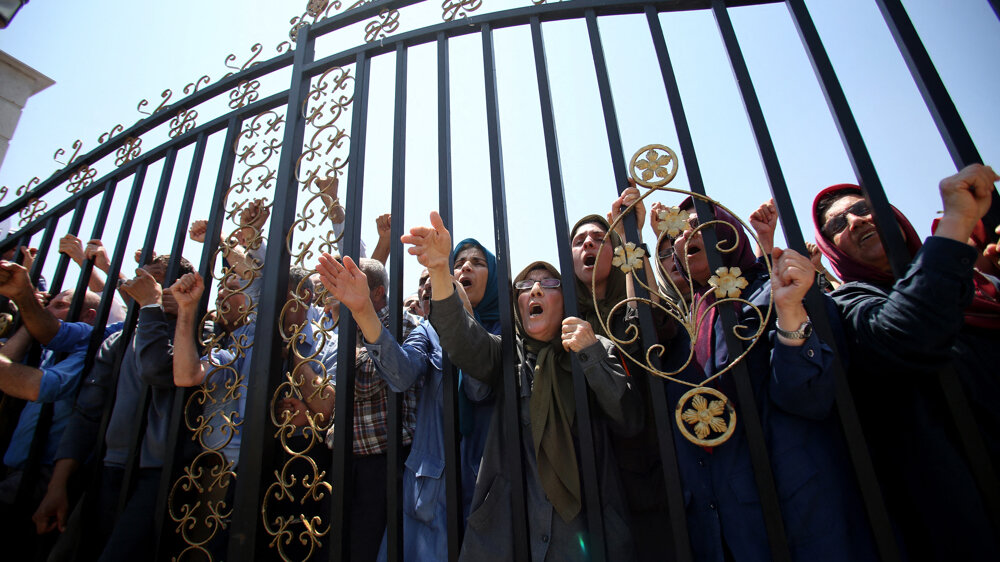MKO poses constant threat to host nations: Foreign Ministry

TEHRAN- Iran’s Foreign Ministry spokesperson has emphasized the terrorist nature of the Mujahedin-e-Khalq Organization (MKO) and its recent skirmishes with Albanian police, stating that the anti-Iran terror group would always pose a threat to the security of its host nations.
In addition, Nasser Kanaani said in a series of tweets on Wednesday that the MKO, also called MEK, had been kicked out from Iraq because many other nations had refused to recognize it owing to its terrorist nature.
As a result of pressure from its Western allies, Albania has hosted the terror group and thousands of its members for ten years.
He then expressed optimism that Albania would “make up for its mistake of hosting this terrorist cult.”
His comments were in response to protests that broke out on Tuesday when Albanian security forces raided an MKO camp because the group was carrying out “terror and cyber-attacks” against international organizations.
During the skirmishes in the Ashraf-3 camp, northwest of the capital Tirana, at least one MKO member was murdered and several more were hurt.
Kanaani added that the Albanian police visited the Ashraf-3 camp for an examination on the basis of a court verdict issued by Albania’s Special Court Against Crime and Corruption on June 20.
The MKO members’ “criminal and terrorist” activities in Albania were cited as the cause of the raid, he said.
Kanaani said that the relevant Albanian authorities had disclosed the capture of several electronic devices and drones that the MKO members had used to plan and coordinate their terrorist actions.
The Albanian officials were cited as saying that through its terrorist and cyber actions, the MKO violated the 2014 agreement that allowed its members to reside in Albania, he added.
Members of the MKO spent several years in Iraq, where Saddam Hussein, a former Iraqi dictator, harbored and armed them.
They supported Saddam during his war against Iran in 1980s and afterwards assisted him in putting down protests across the Arab nation.
After the terrorist group was spurned by the government of Iraqi Prime Minister Nouri al-Maliki, Albania started harboring the group.
Since 2016, the European nation is said to have hosted some 3,000 members of the terror group.
MKO social media accounts blocked
Numerous MKO accounts on social media networks are said to have been shut after the Albanian police raid.
According to a statement from Albania’s Interior Ministry, the country’s police action on Tuesday was necessary since the MKO refused to abide by the 2014 agreement.
It added that the group had carried out actions that contravened the commitments it made when it “settled in Albania for humanitarian purposes alone.”
“Unfortunately, this group has not adhered to these commitments,” the ministry said.
Albania’s interior ministry and police, who published footage of their operation, disputed responsibility for one MKO terrorist’s death.
During a press conference, Interior Minister Blendi Cuci told that police did all they could to avoid causing “incidents,” and no MKO members were hurt by officers.
He also condemned the “intolerable” violence the MKO had committed against the police.
MKO worked with Daesh terrorists to undermine resistance
Based on some documents, the MKO terrorists were working with the opposition and Takfiri groups in Iraq and Syria to undermine the resistance front.
Such cooperation included collecting information, online spying, transferring money, and even helping to recruit and send troops for the Takfiri groups, the documents show.
From the start of the Takfiri group’s rise in Iraq, the MKO terrorists met with the Daesh commanders multiple times.
The Daesh leaders were persuaded during these sessions that the MKO had no interest in religious discourse and would support any organization that opposed Iran’s plans and interests.
The MKO terrorists and Saddam Hussein’s outlawed army commanders had a close connection throughout the Saddam rule.
Following its inception, a number of former Baath Party members joined the Daesh terrorist group, laying the foundation for future contact and collaboration between Daesh and the MKO.
Documents showed that the MKO terrorists also provided substantial intelligence on the resistance front to the Israeli officials and the U.S. forces in Iraq.
